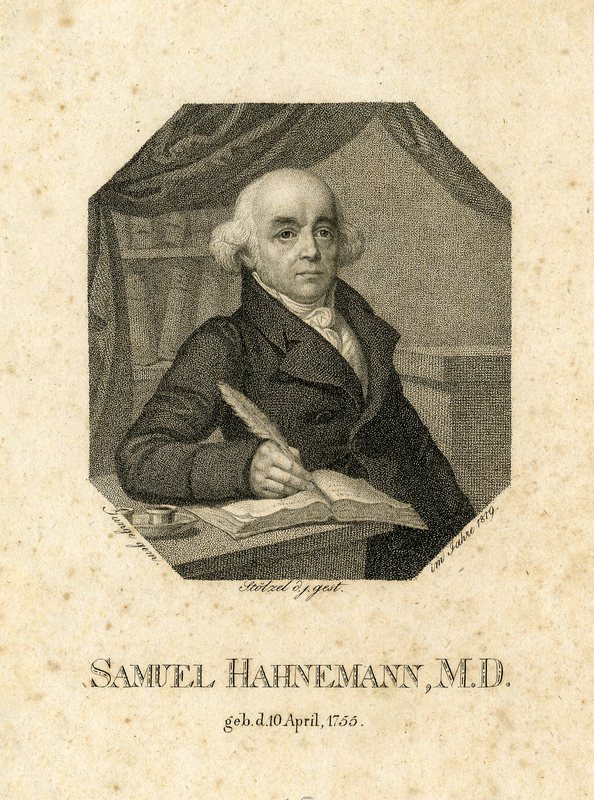Early Theory of Homeopathy
The homeopathic medical movement was founded by German physician Samuel Hahnemann (1755-1843) in 1796, in reaction, in part, to the heroic medicine practiced at the time, with its violent regimens of bleeding, cupping, purging, blistering, and administration of large doses of substances such as calomel and theriac. Hahnemann's system was based on two distinct ideas. The more famous, the law of similars, posited that a disease could be cured by administering a substance which produced similar symptoms in a healthy person. This would then create an artificial form of the disease which the body could combat. According to Hahnemann, "Therefore, the healing power of medicines rests upon their faculty of producing symptoms similar to the disease, and superior to it in strength, so that each individual case of disease is most certainly, fundamentally, and rapidly extinguished and cancelled by a drug which is more potent than the disease, and capable of producing in the body symptoms most similar to, and completely resembling the totality of the disease." The term "homeopathy" is Greek in derivation, a compound of the words for "similar" and "disease."

